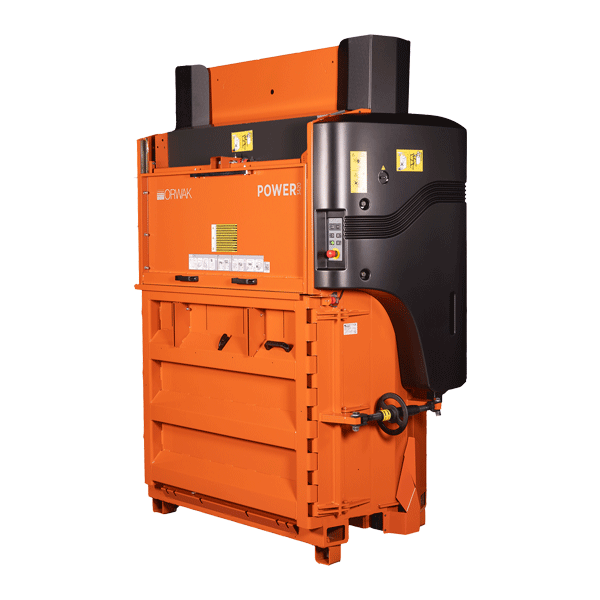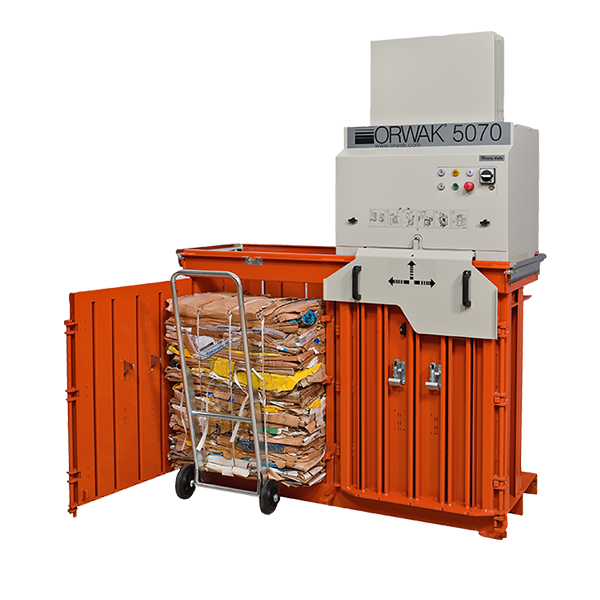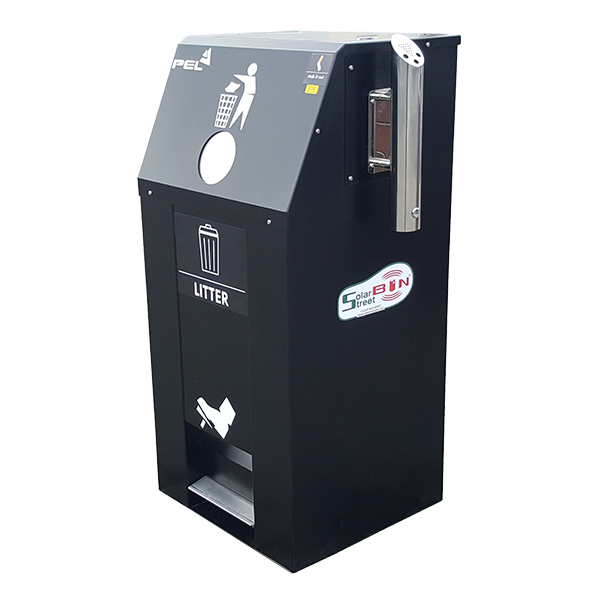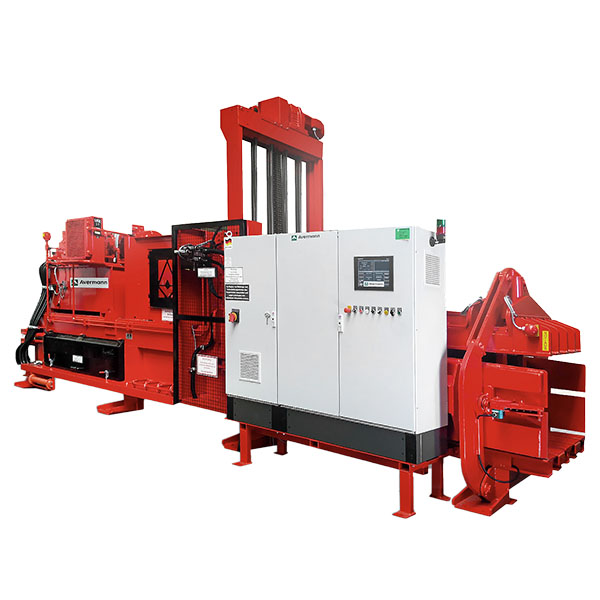Advantages
- Efficient waste management, reducing storage space.
- Facilitates recycling, promoting sustainability.
- Reduces disposal costs with fewer waste pickups.
- Potential for process optimization – compacting at the location where waste is generated.
- Increase of labour safety.
Keep in mind
- Initial investment cost or running leasing / rental costs – can be compensated by fewer waste pickups.
- Requires regular maintenance.
Types of Balers:
Front-loaded Balers
Ideal for larger waste volumes, these balers are loaded from the front, offering powerful compaction.
Use Cases: Large industrial setups with substantial waste.
Advantages: Can handle large volumes; efficient compaction.
Disadvantages: Requires more space; higher initial cost.
Top-loaded Balers
Suitable for spaces with limited room, these balers are loaded from the top and are effective for light baling tasks or multi-chamber balers for sorting and compacting various waste types.
Use Cases: Retail outlets, small / medium industries, hospitality.
Advantages: Suitable for limited spaces; cost-effective.
Disadvantages: Limited capacity.??? We would not say that the multi-chamber balers have limited capacity. They are just different types of applications…
Vertical Balers
Standing upright, these are perfect for businesses with limited floor space. They compress recyclable materials like cardboard, paper, plastics, and more into dense, consistently shaped bales for storage and transport.
Horizontal Balers
Designed for larger operations, they process waste continuously and are ideal for centralized and automated waste handling.
The Interzero machines encyclopedia
Balers
Balers are integral for compressing waste materials into compact bales, streamlining handling, transport, and storage.
Compactors
Compactors are designed to minimize waste volume, optimizing storage and reducing hauling costs. They compress large volumes of trash into a contained area, reducing the number of pickups required. Compacted trash occupies less space, reducing odor, vermin, pilferage, and fire hazards.
Smart Bins
Smart bins, equipped with sensors, monitor waste levels in real-time, optimizing waste collection schedules and enhancing waste management efficiency.
Briquette Presses
Briquette presses transform waste materials into compact briquettes, which can be used for recycling or as fuel. They compact large volumes of empty packaging waste such as cardboard, empty beverage containers such as PET bottles and alu cans. A special application can also be used for beverage containers containing liquid, helping businesses dispose of products according to regulations.





